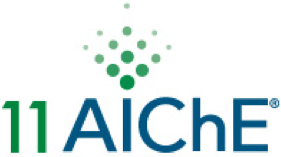

Extreme purpose of finding the most cost effective design solution with the least waste generation possible, considering environmental and social impacts in chemical engineering design problems justifies developing a systematic methodology for incorporating sustainability concerns into design and optimization of chemical process. This paper presents an applicable methodology for incorporating sustainability concerns into design and optimization of chemical process systematically. The methodology incorporates economic, social and environmental metrics into the chemical process optimization at the initial design stage, which is totally different with the traditional end-of-pipe treatment methods. First, a Particle Swarm Optimization algorithm was modified to enable handling a multitude of objectives imposed while considering sustainability concerns. In the multi-objective optimization problems, selecting the leaders (guides) in the swarm from a set of non-dominated solutions has a great impact on the convergence and diversity of the solution especially in handling high dimensional optimization problem. In this work a quite novel approach was developed to adopt PSO into multi-objective problems for efficient convergence to a diverse final solution set. Secondly, a SUSTAINABILITY EVALUATOR was linked to the optimization algorithm to quantitatively evaluate the objectives during optimization procedure. Thirdly, an efficient constrained handling strategy was incorporated to cope with the optimization problem highly constrained with equality and inequality constraints. Next, a multi-objective non-linear mathematical model was established by considering social, environmental and economic factors. Finally, the high non-linear model was solved by the modified Multi-Objective Particle Swarm Optimization, called MLMOPSO, algorithm. The proposed methodology was tested using the William Otto process.
Please Note: Members of the Process Development Division of AIChE are entitled to this content for free. Simply enter the 'promo code' PDCOD when you are checking out. Only AIChE members are entitled to join the Process Development Division. For more info please click here. click here
Presenter(s)
Once the content has been viewed and you have attested to it, you will be able to download and print a certificate for PDH credits.
If you have already viewed this content,
please click here
to login.
